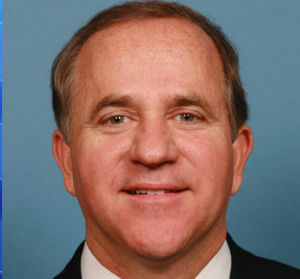Stock market gains help pave way for IPO resurgence
The rebound in IPOs is being fueled by a stock market rally that has the S&P 500 up about 19% so far this year, a sharp reversal from last year’s 19.4% loss.
The rebound in IPOs is being fueled by a stock market rally that has the S&P 500 up about 19% so far this year, a sharp reversal from last year’s 19.4% loss.
The S&P 500 is now in what Wall Street refers to as a bull market, meaning the index has risen 20% or more from its most recent low. Here are some answers to questions about bull and bear markets.

Officials of the two-year-old firm that provides professional services in the health care and life science industries expect the offering to raise up to $8 million.

Eli Lilly and Co. shares have soared 57% over the past 52 weeks, buoyed in part by sales of its diabetes drug Mounjaro, which the company is also preparing to seek approval to market for obesity.

The former representative for Indiana’s 4th Congressional District is accused of illegally garnering stock windfalls by exploiting his consulting clients’ corporate secrets years after he left Congress.

The Greenfield-based maker of animal medicines said fourth-quarter revenue fell due to “environmental and competitive pressure” and could continue to slip this year.
The benchmark index fell 0.3% Friday, the last trading day of the year, leaving it down 19.4% for the year.

The stock market dropped in 2022. So did the unemployment rate. Except in Indiana, where in both cases, the numbers crept up.

Indianapolis-based biotech firm Point Biopharma Global Inc. hopes to raise about $125 million in the offering, before underwriting expenses and deductions.
The hotter-than-expected inflation reading has traders bracing for the Federal Reserve to ultimately raise interest rates even higher than expected to combat inflation, with all the risks for the economy that entails.
The losses came after Chair Jerome Powell said the Federal Reserve will likely need to keep interest rates high enough to slow the economy for some time in order to beat back the high inflation sweeping the country.
Jake Freeman, a math major, bought 4.96 million shares at $5.50 each in July through a Wyoming-based holding company he set up. On Tuesday—a day when the stock spiked above $27 a share—he sold everything.
Under the bill, companies will face a new 1% excise tax on purchases of their own shares, effectively paying a penalty for a maneuver that they have long used to return cash to investors and bolster their stock price.
The stock sale is a primary way for the endowment, one of the largest private philanthropic foundations in the United States, to raise cash to make grants to arts, education, religious and community development organizations.
Inflation tightened its grip on businesses and consumers during the second quarter and investors expect to see a dent in the latest round of corporate earnings.
At the close of trading June 24, Bloomberg’s Indiana Index was trading at $375.30, up 0.55% from the beginning of the year. The S&P 500 was down 18.45% and the tech-heavy Nasdaq was down 26.59%.
The S&P 500, Wall Street’s broad benchmark for many stock funds, closed the first half of 2022 with a loss of more than 20% after starting the year at an all-time high. It’s the worst start to a year since 1970, when Apple and Microsoft had yet to be founded.
Financial markets shuddered Thursday as they adjusted to the Federal Reserve’s latest attempts to address inflation.
Wall Street is back in the claws of a bear market as worries about inflation and higher interest rates overwhelm investors.
The prospect that the Fed will accelerate its credit tightening, further raising borrowing costs for households and businesses, drove the stock market sharply lower Monday. The broad S&P 500 index fell into bear-market territory.